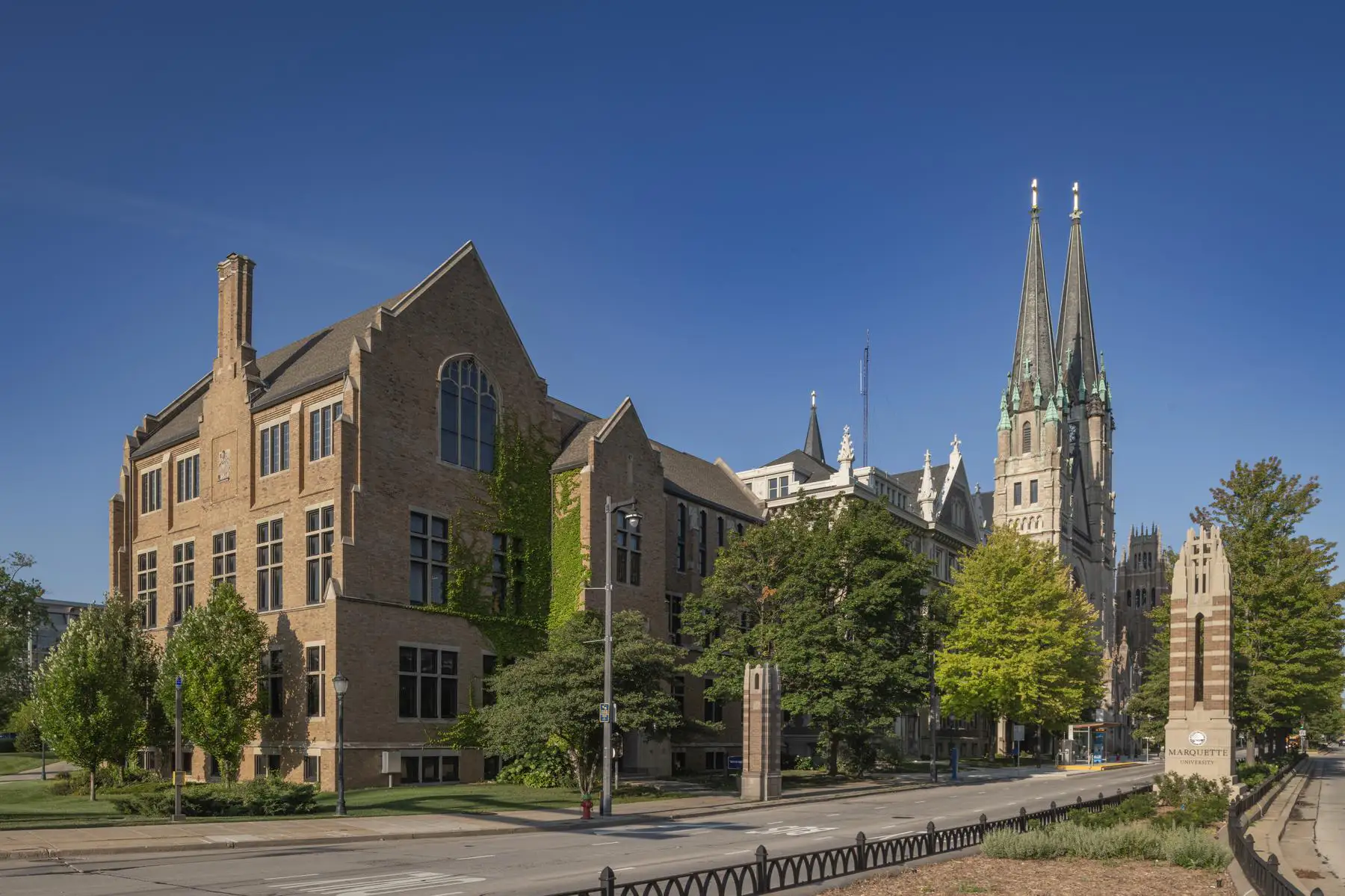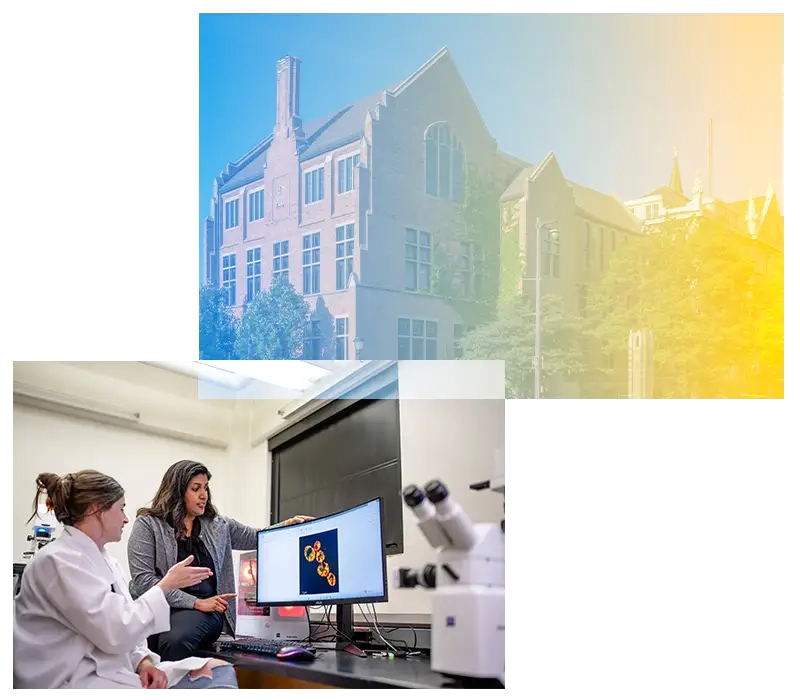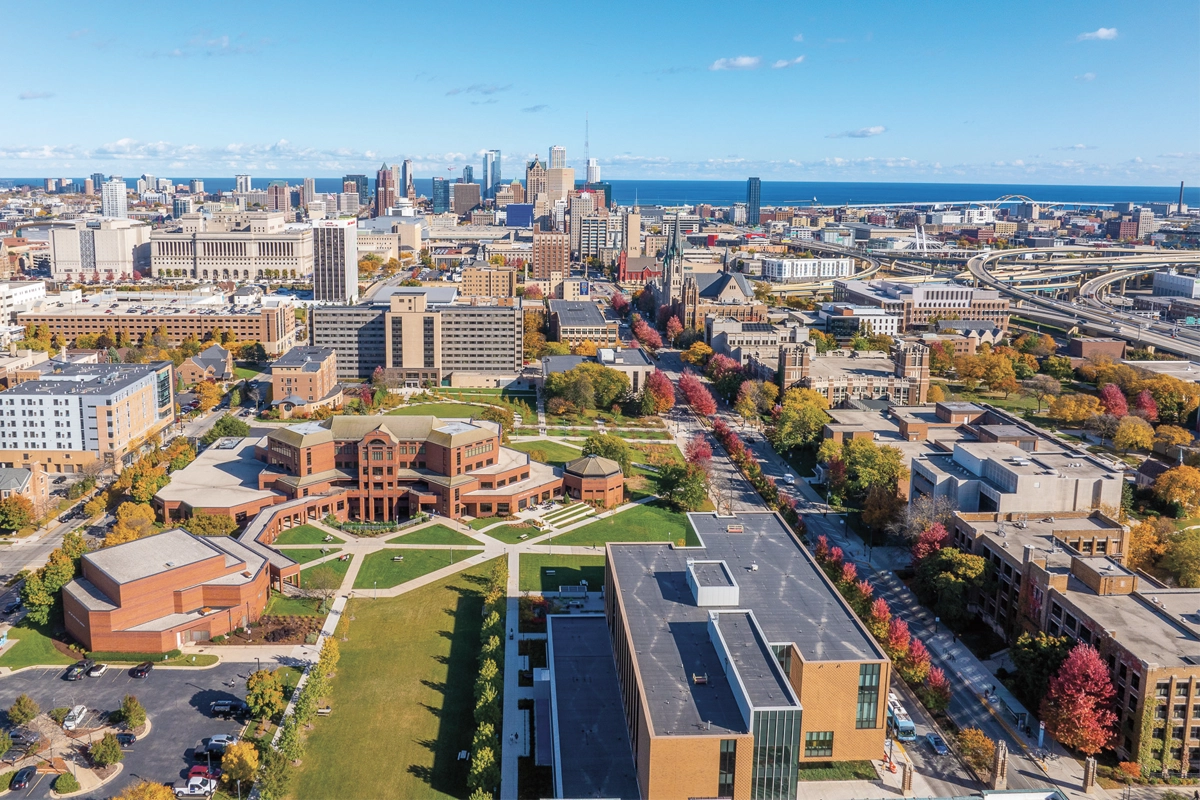Step into a field where physics meets biology — and where you’ll solve biological mysteries, from the intricacies of human DNA to the complexities of diseases. You'll get your hands on the latest technology in labs, work side by side with professors on groundbreaking research and apply your knowledge in real-world settings through internships and service-learning initiatives.
You’ll be prepared for a wide range of careers, doing things like designing medical instruments, detecting chemicals, modifying microorganisms and improving water sources.
The biophysics major is designed to cultivate not only your scientific acumen but also your sense of responsibility toward using science for good. By the time you graduate, you'll have a vision of how you can improve the health of people worldwide — and be equipped with the technical skills to make it happen.

Sensenbrenner Hall, College of Arts and Sciences
The ability to make significant positive change in the world requires knowing more than one area well. And since our College of Arts and Sciences is the most academically diverse college on campus, we're the perfect place to prepare for your role as a changemaker. So broaden your expertise by adding at least one additional major or minor to your degree — 73% of our students do.
The biophysics major is excellent preparation for graduate, medical, dental and law schools; industrial or government research and development; and teaching. Here’s where some of our graduates have landed.

While you’re here at Marquette, preparing you for what’s next will be one of our top priorities. So, expect lots of learning by doing, connecting with others who share your passions, and reflecting on how you can Be The Difference.
As a biophysics major, you'll have lots of career options. Help decide the direction you'll take — and get valuable professional experience — with an internship. Internships can include working in a variety of professional settings in Milwaukee and nationwide. Our internship program is here to help you find the best option for you.
You’ll have plenty of opportunities to follow your interests here, like volunteering with a faculty member whose research area intrigues you or completing your own independent study.
Here are some of the topics our faculty and students are exploring now:
Learn more about physics research at Marquette.
Learn more about biology research at Marquette.
Become a people-centered leader guided by our Jesuit tradition. Join our E-Lead program sophomore year and you’ll complete a combination of leadership courses and experiences that prepare you to be the drivers of innovation for the common good. You’ll develop the skill set to generate innovative solutions and the mindset to reflect on the impact your work has on the world. Bonus: You’ll graduate with a concentration in leadership, too.
Expand your education with a semester abroad. Study program course work at prestigious universities from around the world. Other international opportunities are available for biophysics students through core courses, summer study, language study, faculty-led programs or research.
Check out our study abroad programs.
A Marquette education equips students to thrive professionally and personally through overall student support, career preparation and an extended family that can't wait to meet you. But don't just take our word for it.
Zippia.com
The Wall Street Journal
The Princeton Review (private universities)
